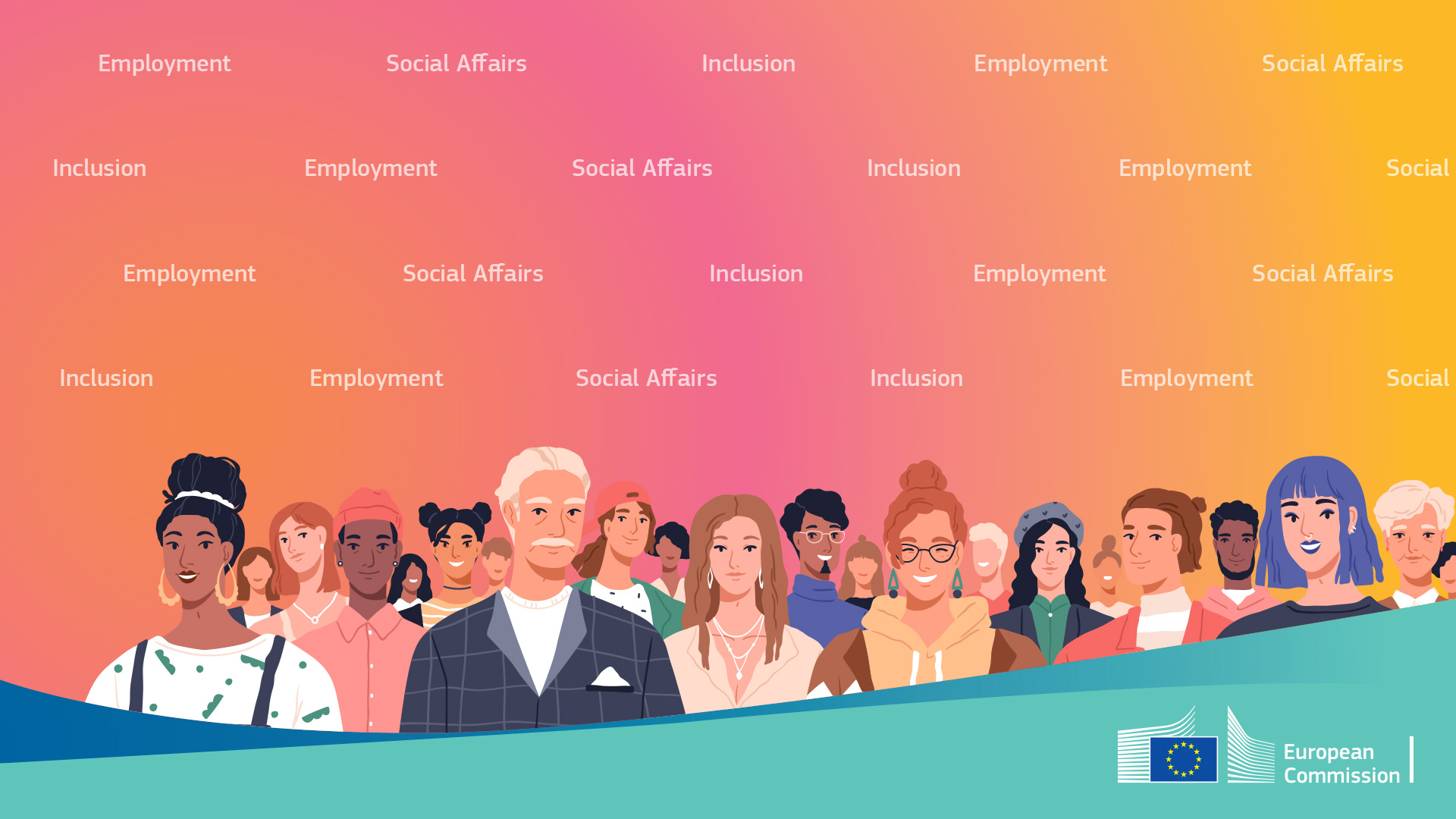How the EU delivers on a social Europe that is fair, inclusive and full of opportunity
- 04 Jan 2023

Debates on what a social and inclusive Europe would look like and how to foster inclusive growth intensified in the aftermath of the 2015 financial crisis. They have become even more important following the social impact of the COVID-19 pandemic and Russian’s invasion of Ukraine. Recent studies indicate that countries with high-quality jobs, good education and social welfare systems, and which invest in human capital, are more resilient to crises. That is why building more cohesive and inclusive societies and providing equal access to services and opportunities for all is crucial for economies to better anticipate and manage change in a fair and inclusive manner. Furthermore, a 2021 Special Eurobarometer poll on social issues found that almost nine out of ten Europeans (88 %) consider that a social Europe is important for them and should offer equal opportunities and labour market access, as well as fair working conditions and social protection.
With the European Pillar of Social Rights, the EU took an important step towards a strong social Europe that is fair, inclusive and full of opportunity in the 21st century. The pillar, with its dedicated Action Plan, helps us improve labour markets and welfare systems for the benefit of all Europeans. It proposes headline targets for the EU to reach by 2030: reaching an employment rate of at least 78 % and a participation rate in training for adults of 60 %, and reducing to below 15 million the number of people at risk of poverty or social exclusion. Delivering on the pillar is a joint effort by EU institutions, national, regional and local authorities, social partners and civil society.
EU cohesion policy contributes to a better life for people across Europe by bridging the gap between regions, with particular focus on helping vulnerable groups and less developed Member States and regions. As such, EU cohesion policy is in the advantageous position of turning the social pillar into reality. To achieve this aim, cohesion policy funds intervene in the areas of employment, education and training, social inclusion and health and social care. While the European Regional Development Fund (ERDF) supports inclusive growth priorities, mainly through infrastructure and equipment support and territorial cooperation, the European Social Fund Plus (ESF+) complements it with support for “soft actions”.
In the 2021-2027 period, inclusive growth remains a priority for EU cohesion policy, with a dedicated policy objective: A more social and inclusive Europe implementing the European Pillar of Social Rights. In synergy with ESF+ soft measures, ERDF support is organised into six specific objectives focused on:
- employment
- education, training and lifelong learning
- socioeconomic inclusion of marginalised groups
- and of third-country nationals
- healthcare and long-term care
- culture and sustainable tourism contributing to economic and social development.
This scope of support will enable Member States and regions to provide high-quality social services for all citizens, ranging from modernised public employment services to inclusive education and training infrastructure, affordable decent housing and healthcare. Member States and regions will be able to use these resources to carry out reforms towards innovative social protection systems that are more resilient and inclusive. As a novelty, the ERDF under this policy objective can directly support the culture and tourism sectors to foster socioeconomic development, social inclusion and social innovation in regions.
For example, Dev’Up Team-FEBRAP helped 11 adapted work companies (a type of social economy enterprise in Brussels, Belgium) facing challenges and competition in their respective sectors to explore new economic opportunities. With this support, the enterprises identified and developed new activities to employ people with disabilities. A budget of up to EUR 300 000 in EU contributions and a dedicated project development and coaching team provided tailored support and entrepreneurial and innovation training based on recent research. As a result, 1 390 workers with disabilities found employment through 38 established projects in the selected adapted work companies.
In Croatia, the e-Schools project, aimed at strengthening the digital capacity of the education system, received around EUR 34 million from ERDF and ESF resources between 2015 and 2018. The goal was to test a pilot introduction of ICT equipment and digital education tools in Croatia. The 151 selected primary and secondary schools received digital connectivity infrastructure and equipment, including laptops and tablets. In addition, up to 1 900 workshops, e-courses and webinars helped to improve the digital competences of teachers in the selected schools. Upon completion of the pilot project, 10 % of Croatian schools had increased their digital learning and teaching capacity. Thanks to the lessons learned in the pilot, a new framework is being developed that will extend the model to around 700 primary and secondary schools in the near future.
The ERDF assisted the Social Housing Agency in Madrid, Spain, with resettlement and support programmes for families living in two segregated settlements of the region. EU support, which amounted to around EUR 31 million, enabled the purchase more than 600 social housing units on the second-hand property market. The agency made these houses available for rent, to integrate into the community socially excluded families residing in shanty towns. Parallel to the process of relocating families into the new homes, social workers and educators from the Social Housing Agency helped the families before, during and after their move. The programme has helped numerous disadvantaged families improve their housing situation and facilitated their integration into the community.
In healthcare, a new integrated health centre in Kadrina, Estonia was set up with the support of the ERDF. Previously, access to healthcare in the area was difficult due to scattered infrastructure. The centre provides high-quality primary healthcare services, physiotherapy, home nursing and midwives’ reception under one roof, along with a pharmacy, dental services and social counselling. The project has reduced the time patients spend reaching different services and has facilitated consultation between specialists.
Overall, cohesion policy assists Member States in promoting inclusive growth and investing in every stage of people’s lives. By doing so, the EU contributes to a Europe based on fairness, inclusivity and opportunities for all.


